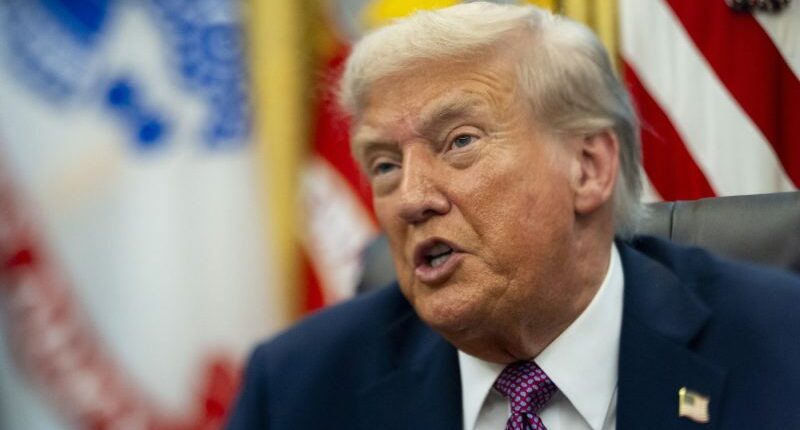Share this @internewscast.com

An appellate court dealt a blow to President Trump’s initiative to halt billions in foreign aid approved by Congress using “pocket rescissions.”
The decision from the U.S. Court of Appeals for the District of Columbia Circuit, which was split 2-1, reaffirmed a lower court’s judgment from earlier in the week. This decision insisted that the administration must dispense the previously authorized funds, and cautioned that any attempt to retain them is likely contrary to the law.
The panel of three judges offered no extensive explanation, noting that the “appellants have not met the rigorous prerequisites for a stay pending appeal.”
Judges Cornelia Pillard and Florence Pan, who received their appointments from Presidents Obama and Biden, respectively, concurred with the lower court’s judgment. Conversely, Judge Justin Walker, a Trump appointee, expressed disagreement.
The ruling was issued a mere two days following U.S. District Judge Amir Ali’s denouncement of the administration’s reluctance to allocate the funds as legally mandated.
In his comprehensive 43-page decision, Judge Ali remarked on Wednesday, “Defendants’ numerous excuses for not presenting an argument throughout the extended months and given opportunities might be varied, but even with a shift in their stance, there is no credible statutory interpretation that would legitimize withholding billions of dollars.”
He added, “Whatever the reason, Defendants have given no justification to displace the bedrock expectation that Congress’s appropriations must be followed and that absent a ‘claim of unconstitutionality that has not been rejected by final Court order, the Executive must abide by statutory mandates.'”
In late August, Trump notified Congress of his intention to claw back $4.9 billion in funding allocated to the State Department and the U.S. Agency for International Development (USAID) utilizing a rare “pocket rescission.”
The effort to rescind the funding was met with opposition from Senate Appropriations Committee Chair Susan Collins (R-Maine), who called it an “attempt to undermine the law.”










